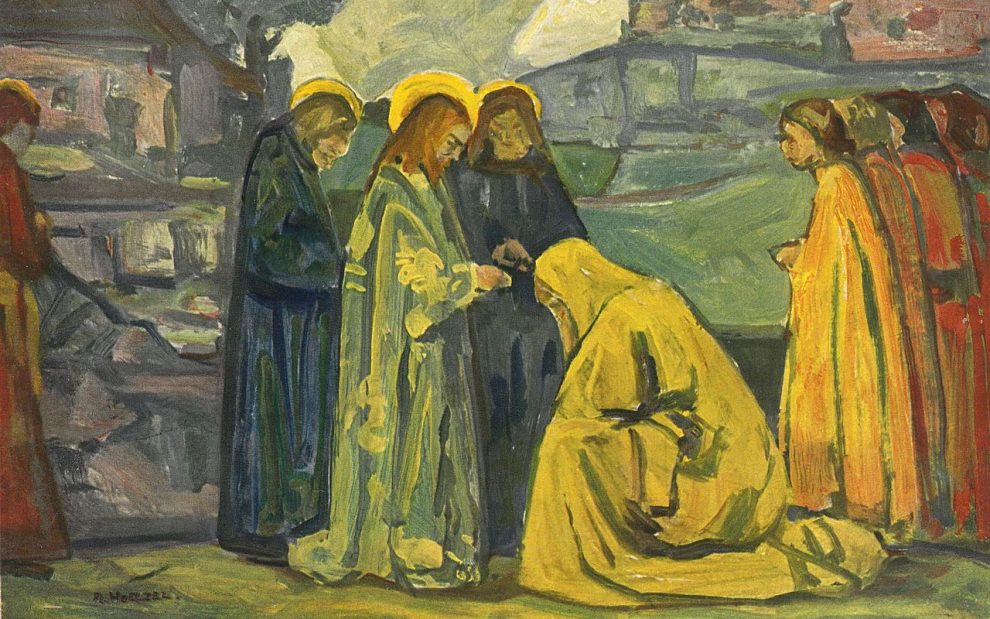At a recent family Christmas gathering on Zoom, one visibly worried relative inquired how we can remain strong for one another in a world that looks increasingly bleak from the COVID-19 pandemic and our nation’s sociopolitical unrest.
The virus is still spreading, infecting millions of people, and the newly discovered variant is spreading even more fear and anguish. As the new year begins, we are still isolated from one another, and students are returning again to virtual classrooms. The fortunes that we have worked so hard to acquire keep depleting as the pandemic continues to create the worst economic hardship the world has experienced. Many people celebrated Thanksgiving and Christmas without their loved ones.
COVID-19 has not only affected our health; it has also destroyed our social and spiritual well-being. The pandemic has caused emotional and physical exhaustions and diminished our coping skills.
Psychologists observe that those who remain hopeful are in a better position to deal with the pandemic’s setbacks and adversities and have a greater chance of bouncing back from the pandemic’s stresses. To choose hope is to eliminate fear, anxiety, and despair. Choosing hope connects us with our desire to succeed and with God, who watches over us.
Like so many of us today, the hemorrhaging woman in Mark 5:25–34 suffered many setbacks, including an illness that threatened her life and drained her fortunes. Numerous doctors’ visits produced no clear path towards a cure but exacted a huge toll on her emotional and physical well-being as her condition grew from bad to worse (5:26). Perhaps she, too, suffered social isolation from family and friends; unlike Jairus’ daughter, whose story is told alongside hers (5:21–24, 35–43), the woman is apparently alone in her search for a cure.
In spite of the adversity she faced, however, this woman chose hope, a hope that kept her from giving up on life and preserved her desire to live. Her hopeful perseverance in the face of debilitating illness is a reminder that hope will never fail us (1 Cor. 13:8).
To choose hope is to eliminate fear, anxiety, and despair. Choosing hope connects us with our desire to succeed and with God, who watches over us.
For 12 years, this woman has been suffering. She has undergone multiple doctor’s visits, sat at the examination table of one doctor after another, hoping that one test result will yield a clear diagnosis and points towards a cure. Instead, at each visit she is disappointed; she exits each doctor’s office with the huge pain of uncertainty. How much time does she has to live with this illness?
However, these disappointments and setbacks do not diminish her hope or her search for a cure. One day, she learns that Jesus is in town. She seeks him out and finds an unorthodox healer extraordinaire with a crowd swirling around him, slowly making his way to Jairus’ house to heal the man’s young daughter (5:27). Weakened by her illness, she winds her way through the crowd to reach Jesus.
Here, the woman’s hope of getting healthy outweighs her immediate health challenge: At this moment, she is driven by her positive outlook. Hope keeps her from despair and imbues her with the belief that a cure is possible and confidence that she will certainly resume her life again.
Speaking to no one in particular, the woman says, “If I but touch his clothes, I will be made well” (5:28). Her soliloquy reveals the profundity of her hope in Jesus and her trust that Jesus’ garment has the power to cure her of an illness that has defied every possible medical breakthrough that science could offer her.
Indeed, when she touches Jesus’ garment, she is instantly cured. The power of her hope has led to a positive outcome. Jesus immediately wants to know who it was who touched his garment and who received God’s comfort and healing. While there may be many reasons for this, he wants the woman to know that her indefatigable hope has found fulfillment in her encounter with Jesus Christ.
Her soliloquy reveals the profundity of her hope in Jesus and her trust that Jesus’ garment has the power to cure her of an illness that has defied every possible medical breakthrough that science could offer her.
His insistence and probing voice lead her to reveal herself, trembling with fear (5:30–34). This illness has weakened her immune system, destroyed her emotional and physical strength, and drained her fortunes; yet hope for a positive outcome led her to Jesus Christ. Jesus’ words to her as the crowd listens in—“go in peace, and be healed of your disease” (5:34)—restore her, rehabilitate her humanity, and end the isolation she has suffered for 12 years.
The woman’s encounter with Jesus Christ teaches us that the eyes of the Lord are on those who hope in God’s love (Ps. 33:18). Through her toils and afflictions, she held unto hope with the knowledge that “The steadfast love of the Lord never ceases, his mercies never come to an end” (Lam. 3:22). All children of God will experience God’s love, compassion, and mercy. The Lord will be present to those who hope in him (Ps. 147:11). If we choose hope and trust in the Lord during times of crisis and uncertainties, we shall prevail, we shall be renewed, we shall never grow weary, and no bouts of despair shall assail us (Isa. 40:31).
For many people today, battling COVID-19 and the various ways the virus has adversely affected our lives, it is hard to choose hope. Our world seems so bleak, and we are constantly at high alert to perceived real or imaginary threats. In spite of the world’s bleakness, however, choosing hope is to decide to trust and believe in the power of God to bring us relief when our best efforts are insufficient.
When we choose hope we conquer our fears, connect ourselves to the spiritual sphere where we encounter God, and begin to discern the impermanence of the bad times covering us with a thick cloud of uncertainties. As the vaccine rollout continues around the world, choosing hope adds to our experience of healing.
Image: Wikimedia Commons/ Christus und die Kananäerin, Adolf Hölzel














Add comment